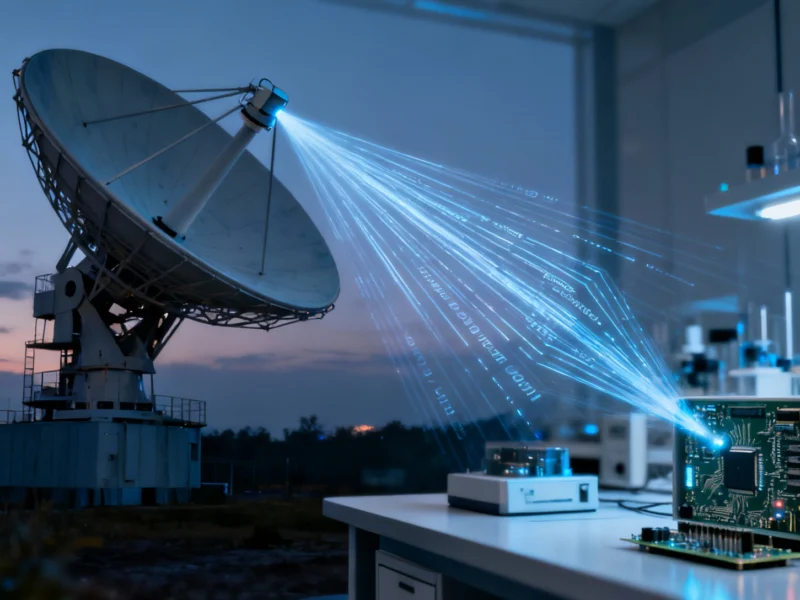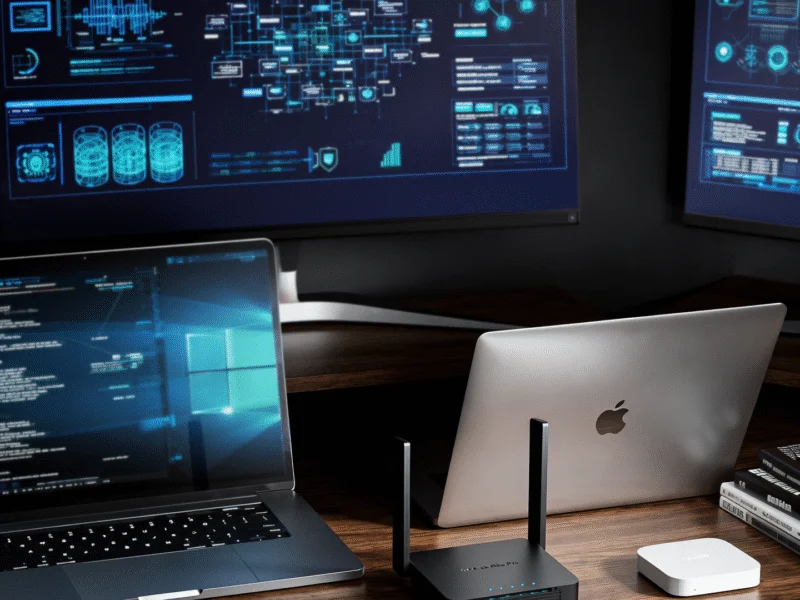A shocking security vulnerability in satellite communications has been uncovered, exposing unencrypted calls, texts, and sensitive data from providers like T-Mobile and others. According to a research paper presented at the Annual Computer Security Applications Conference, these transmissions could be intercepted with roughly $800 worth of commercial gear, raising alarms about privacy and security in satellite networks.
Research Methodology and Key Findings
Scientists from the University of Maryland and the University of California, San Diego, conducted what they describe as “the most comprehensive public study to date of geostationary satellite communication.” By pointing a commercial-off-the-shelf satellite dish at the sky, they intercepted signals from geostationary (GEO) satellites, which remain in fixed positions, unlike low Earth orbit satellites used by services like Starlink. The full PDF research paper, titled “Don’t Look Up: There Are Sensitive Internal Links in the Clear on GEO Satellites,” is available online and details how a vast amount of sensitive traffic, including critical infrastructure, corporate, and government communications, was broadcast without encryption.
Scope of the Exposure: What Data Was at Risk?
The researchers emphasized that unencrypted data included private citizens’ voice calls, SMS messages, and consumer internet traffic from in-flight Wi-Fi and mobile networks. Alarmingly, about half of the signals tested carried sensitive military information, as well as non-commercial user data like GPS tracking during outdoor activities. This exposure stems from the use of unencrypted transmissions in satellite links, which can be easily intercepted, as highlighted in the research from scientists and covered by outlets like Wired.
T-Mobile’s Response and Mitigation Efforts
In response to the findings, T-Mobile addressed the vulnerability, noting that only about 50 cell sites from a vendor were affected out of nearly 82,715 sites nationwide. A spokesperson explained that a technical misconfiguration in remote, low-population areas was to blame, not a network-wide issue. T-Mobile has since implemented nationwide Session Initiation Protocol (SIP) encryption to protect signaling traffic, including call setup and text message content, between mobile handsets and the network core. This move aims to reassure customers, but the incident underscores broader security challenges in satellite integrations.
Expert Insights on Satellite Security Risks
Mahdi Eslamimehr, executive vice president at Quandary Peak Research, advises consumers to treat satellite links like open Wi-Fi hotspots due to inconsistent encryption practices. “For consumers, caution is essential when using satellite-provided connectivity,” he said, recommending the use of VPNs or apps with built-in end-to-end encryption, such as Signal or WhatsApp. Eslamimehr also stresses the importance of keeping hardware updated, as patches often include improved encryption protocols. He notes that satellite technology, while promising for bridging the digital divide, is still maturing in terms of security, especially when integrated with traditional networks for backhaul coverage.
Challenges in Securing Satellite Networks
Securing satellite communications presents unique hurdles, as satellites often rely on varied security protocols that may not align with those of terrestrial networks. This inconsistency creates gaps that differ from risks in conventional cellular systems. For instance, data passing through multiple ground stations and satellites from different vendors may not be uniformly encrypted, leaving vulnerabilities. The research highlights that some providers have yet to fix these issues, despite warnings from scientists over the past year. As satellite internet expands, addressing these security flaws is critical to prevent exploits, similar to those discussed in analyses like the price-floor strategy or incidents involving Starlink in Myanmar.
Recommendations for Users and Providers
To mitigate risks, users should assume that satellite transmissions are not inherently private and take proactive steps:
- Use VPNs to encrypt internet traffic over satellite links.
- Prefer communication apps with end-to-end encryption for calls and texts.
- Regularly update devices to benefit from security patches.
Providers, on the other hand, must prioritize consistent encryption across all network segments, especially in integrations with emergency or cell-tower backhaul systems. As the technology evolves, collaboration between researchers, companies, and regulators—akin to efforts by CNET in tech reporting—will be essential to enhance security maturity and protect user data from future exposures.



